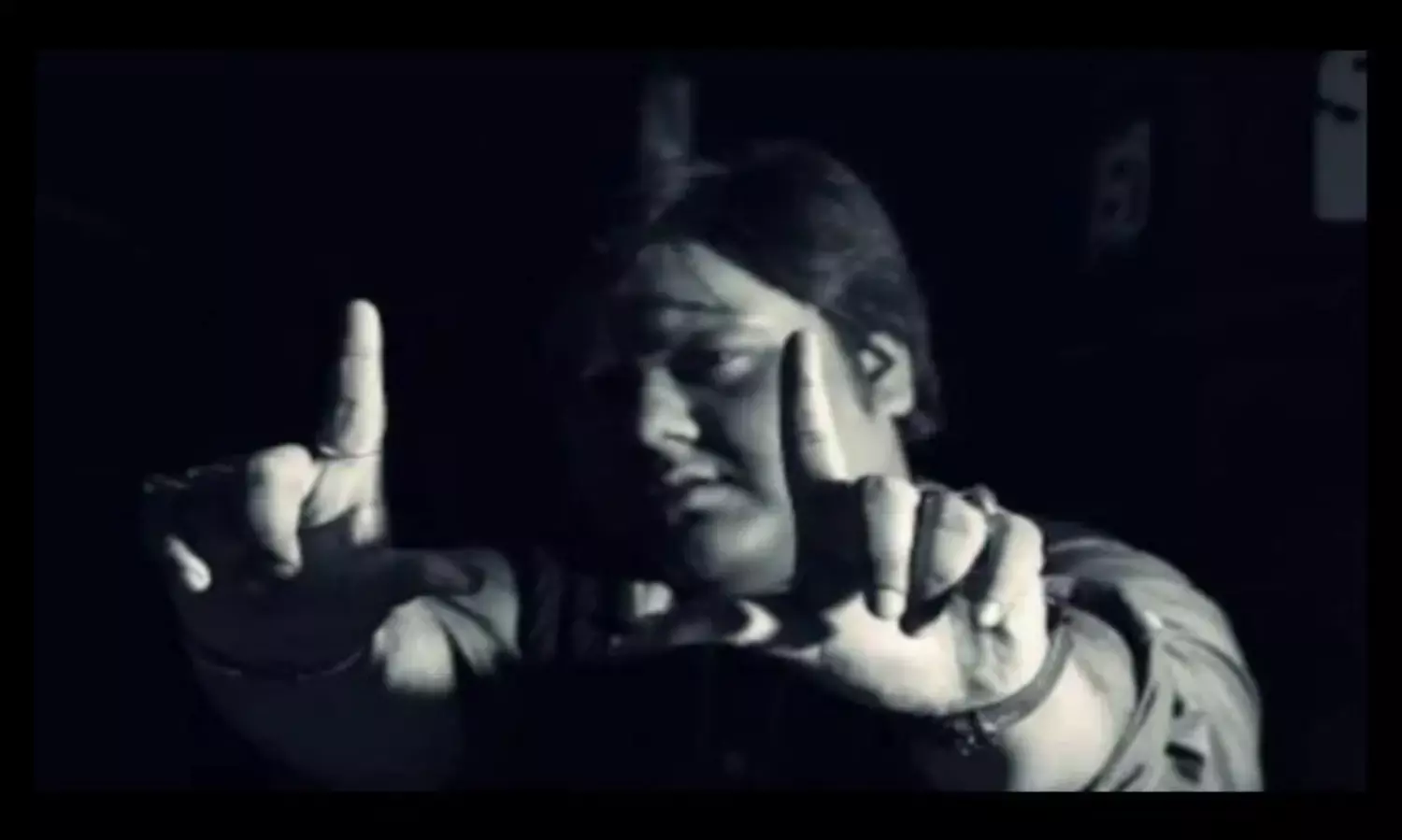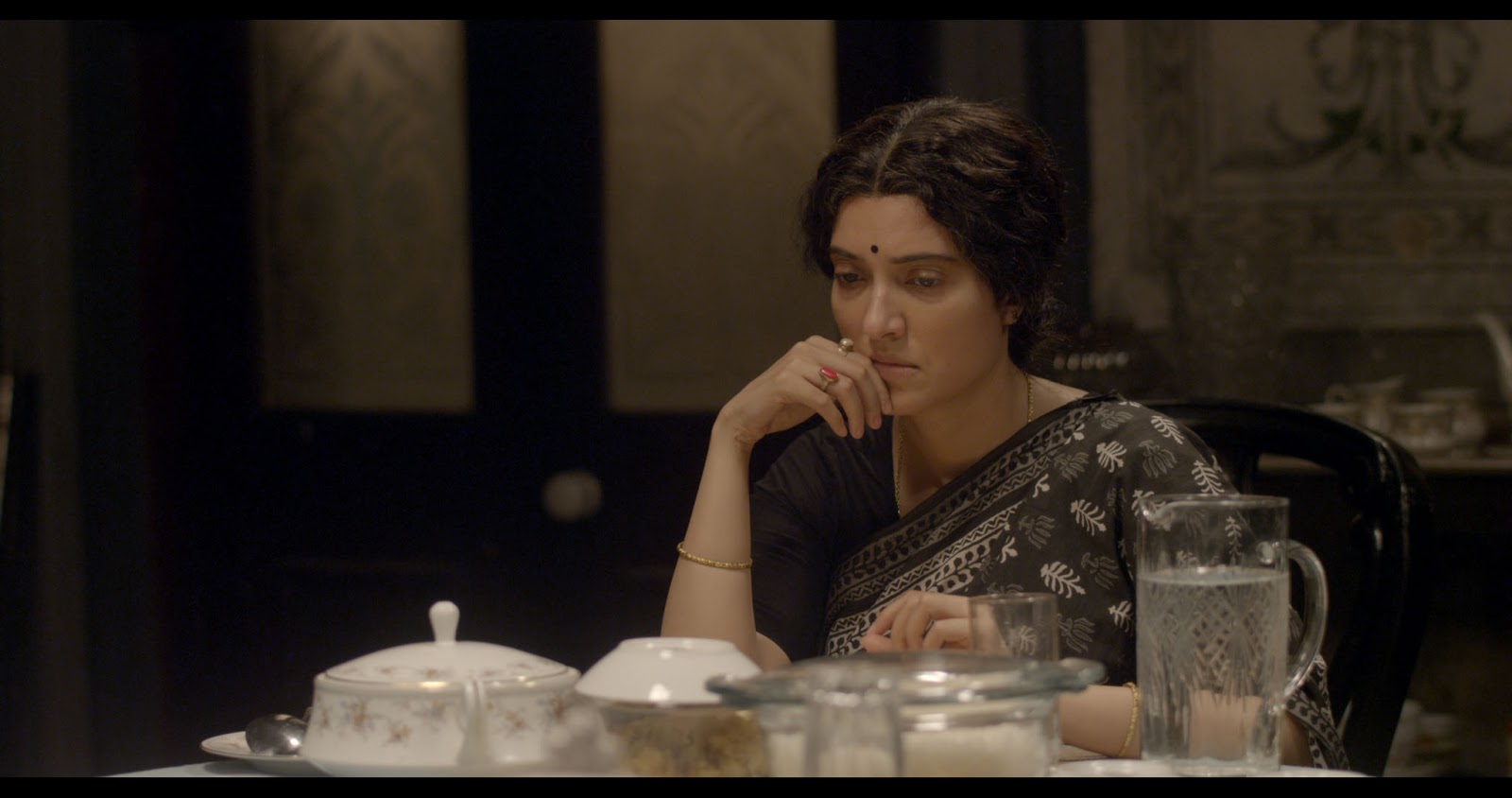Arjunn Dutta - The New Kid on the Bengali Cinema Block
In conversation with the director on his two unique films Abyakto and Guldasta

Do not allow yourself to turn judgemental when you see his size and relate this to his directorial craft. Meet the young and not-so-strapping Arjunn Dutta who has made a big splash with his debut feature film Abyakto, with actors like Arpita Chatterjee and Adil Hussain. His second film Guldasta’s theatrical release was staggered by the pandemic but it drew rave reviews. We nail him down for an in-depth interview specially because he does not come from a film school background nor does come from a family with links in films. He has not assisted anyone either. But both his films have made a deep impact on the audience.
What drew you to filmmaking?
I always had a thing for films. I was bitten by the film bug since I was a boy. I was a complete movie buff and always had this desire of doing something related to films. I was a part of the Dramatic Club in school.
A bit of your background in cinema and academics
I majored in Sociology and completed my Masters from Presidency College. Whatever little I have learnt I have learnt myself, by doing and making mistakes. My journey began with making short films, which were a practical training ground for me. My second short film titled 'The 6th Element' did very well in the festival circuits. It was shown at the Cannes Short Film Corner and also got a prestigious NETPAC nomination. That gave me the impetus to write and direct my first feature film Abyakto.
How do you choose your plots for each film?
I don't choose, the stories come to me organically, the kind of films I have written and directed and the ones which I wish to in future mainly speak about our society and social relationships at various levels. I also get this strong feeling that I have to tell this particular story, it is quite mystic in that way.
Let us hear how the idea of Abyakto came to you and then Guldasta?
Abyakto is a poignant tale of mother and son but it addresses an issue which we generally don't speak about but which is very pertinent in today's society. I have always been intrigued by inter-personal relationships as I have been very close to my family especially my mother and grandmother. My childhood memories comprise secret movie outings with my grandmother. I love telling humane stories and coincidentally both my films Abyakto and Guldasta happen to tell stories centered on human emotions. As for Guldasta I wanted to do something light yet intense after Abyakto which people can relate to. The characters in Guldasta are etched out well and we see these people in our lives.

(Film still from Abyakto)
How do you decide on the casting?
I think if somebody looks the part then it's a plus. I also love to experiment with actors, would love to cast them in characters they have not played earlier, as a director it's challenging for me too. The actors I have worked with in both Abyakto and Guldasta have played characters different from their real selves and have never portrayed something like this before.
Abyakto is mainly about a relationship based on lies and confused remembrances about a little boy of his mother that destroys the mother-son relationship without either of them being responsible. While Guldasta is a form of hyperlinked stories of a few women leading completely polarised lives who happen to meet and bond. Will you kindly explain the springboard that inspired you to make these leaps?
I get that strong inner feeling that I need to tell a particular story. Abyakto deals with a very sensitive subject which needed to be told in a dignified way. I tried my best to deliver what I wished to about a husband-wife relationship that is based on respect but at the same time, are distanced for an offbeat reason. My second film Guldasta is a stirring tale of human bonds and in these trying and uncertain times it imparts hope. While shooting Guldasta, I was more confident and had more clarity about how I wanted the film to shape. In respect of the casting and look and feel Guldasta was a different ballgame altogether but with the help of my extremely hardworking and sincere teammates, we could complete the film within a short span of time.
How do you define cinema according to your perspective?
Cinema should touch hearts, that's the most important thing for me.
How do you direct your technicians and your actors?
After finishing the script and zeroing on the cast, I have sittings with them. Every actor has his/her own style of preparing, so as a writer and director I need to adapt to their methods and techniques. I generally keep feeding insights and few specific traits into their heads. I also speak about how a character will react to a given situation at any point of time though it may not be in the original script. The way they will speak, their postures, eye and hand movements, I give these aspects a lot of importance. I go through thorough pre-production work. The planning needs to be extremely strong. From the scripting stage my DOP Supratim gets involved with the project and we keep discussing, roping in other technical HODs. On the sets, we first rehearse the scene with the actors and then shoot that particular scene.
Which filmmakers - Indian, International and Bengali are you inspired by?
I have grown watching films by Satyajit Ray, Tapan Sinha, Hrisikesh Mukherjee, Basu Chatterjee, Rituparno Ghosh, Aparna Sen, Goutam Ghose and many others. They have made a strong impact on me. Outside India, I am still getting to know a lot about great filmmakers, and am honing my skills. It is an ongoing learning process. I have a list of my favourites but Ingmar Bergman, James Cameron and Woody Allen top the list. I try to imbibe more or less from each of them.
What role does music and sound design play in your filmmaking?
Music has always played a crucial role in my films starting from my short film days. My music director Rith and I keep experimenting with different soundscapes but I do have this special thing for Indian classical music. Rith tries to fit in different raagas according to the mood of a particular scene. Proper sound can make or break a good film. If done right it enhances the film.
Are you satisfied with your film once it is ready for screening?
Never. There is always room for improvement. I personally crib a lot but with time I try to learn from my mistakes and most importantly try not to repeat them in future. It's an ongoing process.
The fame that your first film fetched you - has it made it challenging to make your next film? or is it also a bit scary?
I'm very new to this industry, trying extremely hard to find my way. I believe in working, fame, success, failure, these will wane away eventually but your work, your creation will stay even after your death. So, I try to do my job with honesty, sincerity and integrity. The rest will follow.



